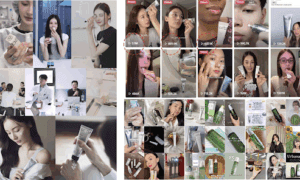Introduction
Every teenager’s life is filled with milestones, challenges, and, unfortunately for many, acne breakouts. As we’ve observed over the years, there seems to be a marked increase in acne episodes during exam seasons. But why is this so?
1. The Science Behind Acne
At its core, acne is an inflammatory condition of the skin. The sebaceous glands, situated at the base of hair follicles, produce oil or sebum. However, when these glands overproduce, pores can get clogged, leading to the infamous acne breakouts. This overproduction is often driven by hormones, especially androgens, which surge during the teenage years.
2. The Stress-Acne Connection
Exams undeniably bring about stress. This stress can elevate the body’s production of androgens. As these hormones increase, so does the skin’s oil production, which can lead to clogged pores and subsequent breakout. A study from Stanford University found that students had more acne during exams compared to their less-stressed periods, pointing to a clear correlation between stress and flare-ups.
3. Sleep Deprivation and Acne
We all know the saying, “beauty sleep.” Sleep is crucial not just for mental acumen but also for skin health. Those late-night cramming sessions and disrupted sleep patterns wreak havoc on the skin. When sleep decreases, cortisol—a stress hormone—increases, which can make the skin oilier and decrease its ability to fend off acne-causing bacteria.
4. Diet Changes During Exams
With looming deadlines and back-to-back revisions, many teenagers resort to quick, often unhealthy snacks. High sugar content and dairy products have been linked to acne in numerous studies. These foods can stimulate insulin production, subsequently causing an overproduction of skin cells and blocking pores. It’s vital to focus on a balanced diet for not just brainpower but also clear skin.
5. Lack of Proper Skincare Routine
Exams can also mean a shift in daily routines. Skincare often takes a backseat. But after hours of studying, it’s essential to cleanse the skin to remove dirt, oil, and sweat. Moreover, using non-comedogenic products can ensure pores aren’t clogged, we recommend anything from the SkinCeuticals skincare line. A simple routine, even during exams, can make a significant difference.
6. Coping Strategies for Exam Stress
While the focus is often on studying, managing stress is paramount. Taking short breaks, for instance, can rejuvenate the mind and reduce overall stress levels. Techniques like meditation, deep breathing, and even quick physical exercises can help. Moreover, setting realistic study goals can avoid the pitfalls of last-minute cramming.
7. Tips for Managing Acne During Exam Season
Firstly, avoid the temptation of over-washing the face, which can strip it of natural oils. Over-the-counter treatments containing benzoyl peroxide or salicylic acid can help. And while the sight of a pimple might be annoying, avoid picking or squeezing, as it can lead to more inflammation or even scars. If breakouts become severe, it’s always a good idea to seek dermatological advice.
Conclusion
In summary, while the teenage years and particularly exam season can feel like an uphill battle against acne, understanding the triggers can arm one with better management strategies. It’s essential to remember the interconnectedness of mental, physical, and skin health during these trying times. Prioritizing self-care, even when swamped, can make all the difference.
Have you battled with acne during your exam season? We’d love to hear about your experiences and any strategies you’ve found effective. Share your stories and tips in the comments below, and let’s create a community of support and advice!



































